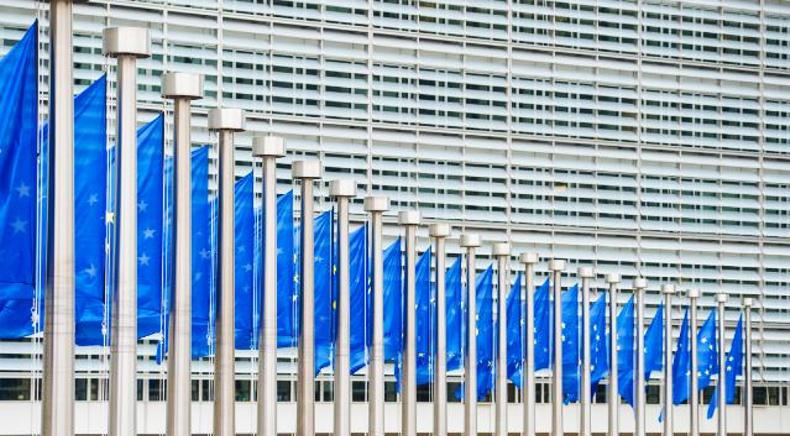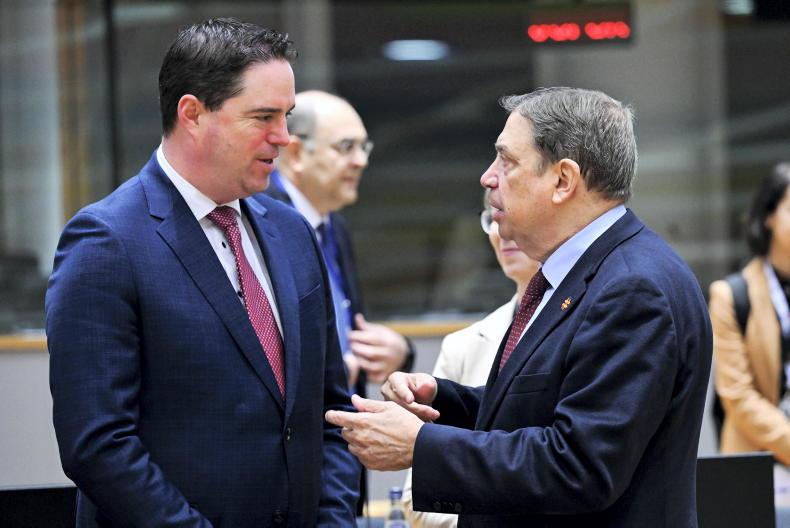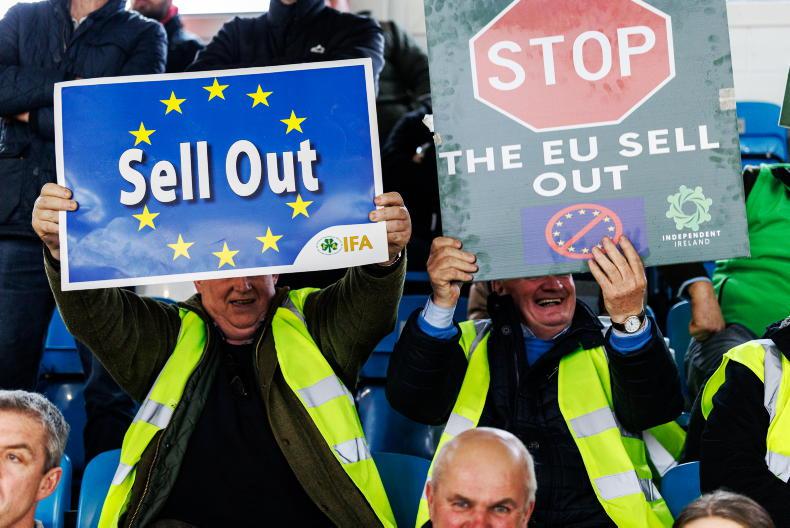The UK and the EU have agreed a protocol on Ireland and Northern Ireland which guarantees that, even in the unlikely event that a future relationship is not in place by the end of the implementation period, 31 December 2020, there will be no hard border between Northern Ireland and Ireland or a splitting of the UK customs territory.
It emerged on Wednesday night that Northern Ireland will remain aligned to the rules of the EU single market and it will retain unfettered market access to the rest of the UK. Goods will still flow between Northern Ireland and the Republic of Ireland as they do today.
The protocol includes a commitment by the UK to apply, in Northern Ireland, EU legislation on industrial, environmental and agricultural goods.
The protocal says that products of animal origin or live animals moving between Northern Ireland and Ireland will not have to undergo sanitary or phyto-sanitary (SPS) checks and controls.
Backstop
A joint statement on Wednesday night said that both the EU and UK will use their best endeavours to have a future agreement concluded before the end of the transition period by 1 July 2020.
“Should this not be the case, the EU and the UK could jointly extend the transition period. Alternatively, as of January 2021, the backstop solution for Ireland and Northern Ireland would apply, subject to a joint review mechanism,” the statement said.
This backstop solution would see a single EU-UK customs territory will be established, called the single customs territory, which will apply from the end of the transition period until such a time as a subsequent agreement becomes applicable.
“Northern Ireland will therefore remain part of the same customs territory as the rest of the UK. The single customs territory covers all goods with the exception of fishery and aquaculture products. The creation of the single customs territory includes the corresponding level playing field commitments and appropriate enforcement mechanisms to ensure fair competition between the EU27 and the UK.
“The outline of the political declaration published today records the progress in reaching an overall understanding on the framework for the future EU-UK relationship. The EU and UK negotiators will continue their work based on the outline. Nothing is agreed until everything is agreed.
“The present withdrawal agreement – including the transition period – must take into account the framework of the future relationship. The political declaration must therefore be further developed and agreed in its final form,” the statement said.
UK cabinet approval
On Wednesday evening, UK prime minister Theresa May emerged from 10 Downing Street after a five-hour meeting with her cabinet where she announced that her cabinet had approved the draft withdrawal agreement.
“I firmly believe that the draft withdrawal agreement was the best that could be negotiated. This is a decisive step which enables us to move on and finalise the deal in the days ahead.
“The choice was this deal… or going back to square one. This is a decision [which] is in the best interests of the entire UK,” she said.
Comment
This is a good outcome for farmers either side of the border. It will allow trade on the island of Ireland to continue uninterrupted and moreover trade on an east-west basis, so critical for farmers either side of the border, also continue unimpeded.
Getting approval in UK Parliament, the next step in the process, will be a huge challenge for Theresa May as 40 or more of her own MPs are expected to vote against the deal and it looks like she has lost the support of Northern Ireland’s 10 DUP members.
It will therefore require the support or abstention of a significant number of opposition MPs. The Irish cabinet was also considering the package on Wednesday. It is expected that a heads of state council meeting will be called for 25 November.
With additional reporting from Amy Forde
Read more
Brexit analysis: UK-wide customs union best for farmers
Brexit: the story so far
The UK and the EU have agreed a protocol on Ireland and Northern Ireland which guarantees that, even in the unlikely event that a future relationship is not in place by the end of the implementation period, 31 December 2020, there will be no hard border between Northern Ireland and Ireland or a splitting of the UK customs territory.
It emerged on Wednesday night that Northern Ireland will remain aligned to the rules of the EU single market and it will retain unfettered market access to the rest of the UK. Goods will still flow between Northern Ireland and the Republic of Ireland as they do today.
The protocol includes a commitment by the UK to apply, in Northern Ireland, EU legislation on industrial, environmental and agricultural goods.
The protocal says that products of animal origin or live animals moving between Northern Ireland and Ireland will not have to undergo sanitary or phyto-sanitary (SPS) checks and controls.
Backstop
A joint statement on Wednesday night said that both the EU and UK will use their best endeavours to have a future agreement concluded before the end of the transition period by 1 July 2020.
“Should this not be the case, the EU and the UK could jointly extend the transition period. Alternatively, as of January 2021, the backstop solution for Ireland and Northern Ireland would apply, subject to a joint review mechanism,” the statement said.
This backstop solution would see a single EU-UK customs territory will be established, called the single customs territory, which will apply from the end of the transition period until such a time as a subsequent agreement becomes applicable.
“Northern Ireland will therefore remain part of the same customs territory as the rest of the UK. The single customs territory covers all goods with the exception of fishery and aquaculture products. The creation of the single customs territory includes the corresponding level playing field commitments and appropriate enforcement mechanisms to ensure fair competition between the EU27 and the UK.
“The outline of the political declaration published today records the progress in reaching an overall understanding on the framework for the future EU-UK relationship. The EU and UK negotiators will continue their work based on the outline. Nothing is agreed until everything is agreed.
“The present withdrawal agreement – including the transition period – must take into account the framework of the future relationship. The political declaration must therefore be further developed and agreed in its final form,” the statement said.
UK cabinet approval
On Wednesday evening, UK prime minister Theresa May emerged from 10 Downing Street after a five-hour meeting with her cabinet where she announced that her cabinet had approved the draft withdrawal agreement.
“I firmly believe that the draft withdrawal agreement was the best that could be negotiated. This is a decisive step which enables us to move on and finalise the deal in the days ahead.
“The choice was this deal… or going back to square one. This is a decision [which] is in the best interests of the entire UK,” she said.
Comment
This is a good outcome for farmers either side of the border. It will allow trade on the island of Ireland to continue uninterrupted and moreover trade on an east-west basis, so critical for farmers either side of the border, also continue unimpeded.
Getting approval in UK Parliament, the next step in the process, will be a huge challenge for Theresa May as 40 or more of her own MPs are expected to vote against the deal and it looks like she has lost the support of Northern Ireland’s 10 DUP members.
It will therefore require the support or abstention of a significant number of opposition MPs. The Irish cabinet was also considering the package on Wednesday. It is expected that a heads of state council meeting will be called for 25 November.
With additional reporting from Amy Forde
Read more
Brexit analysis: UK-wide customs union best for farmers
Brexit: the story so far









SHARING OPTIONS